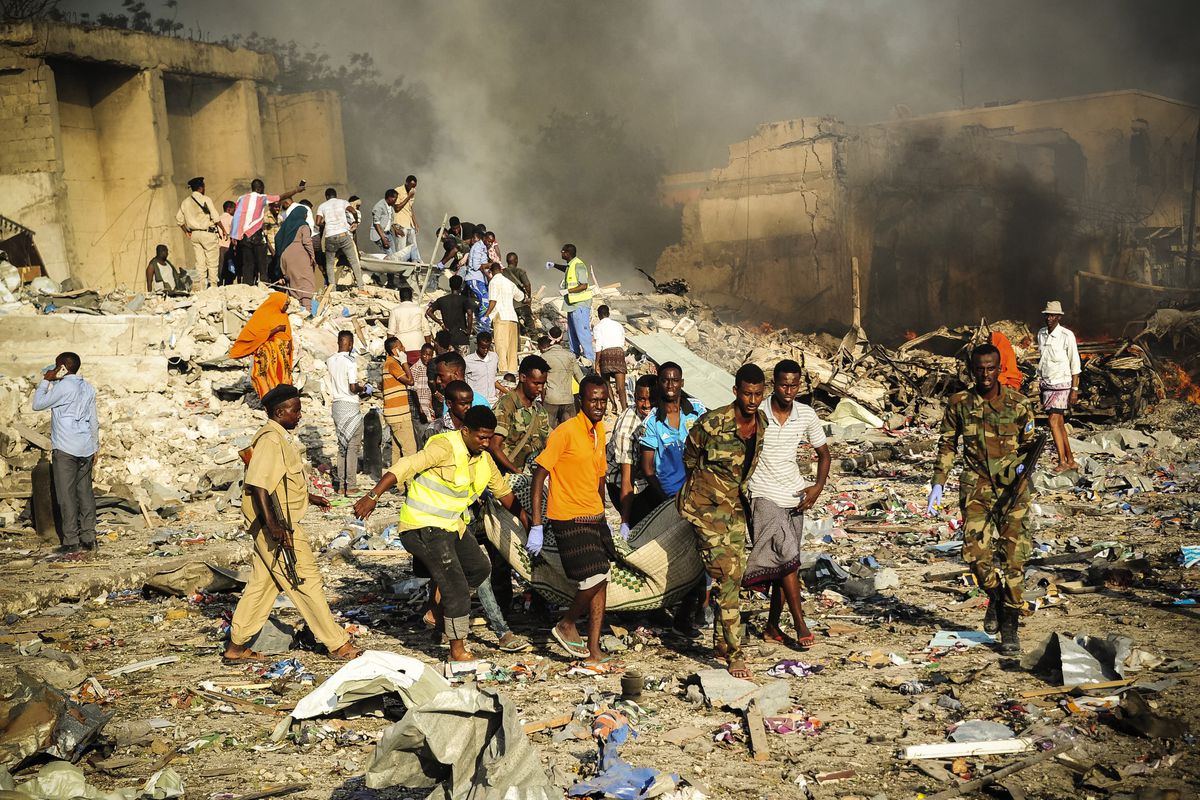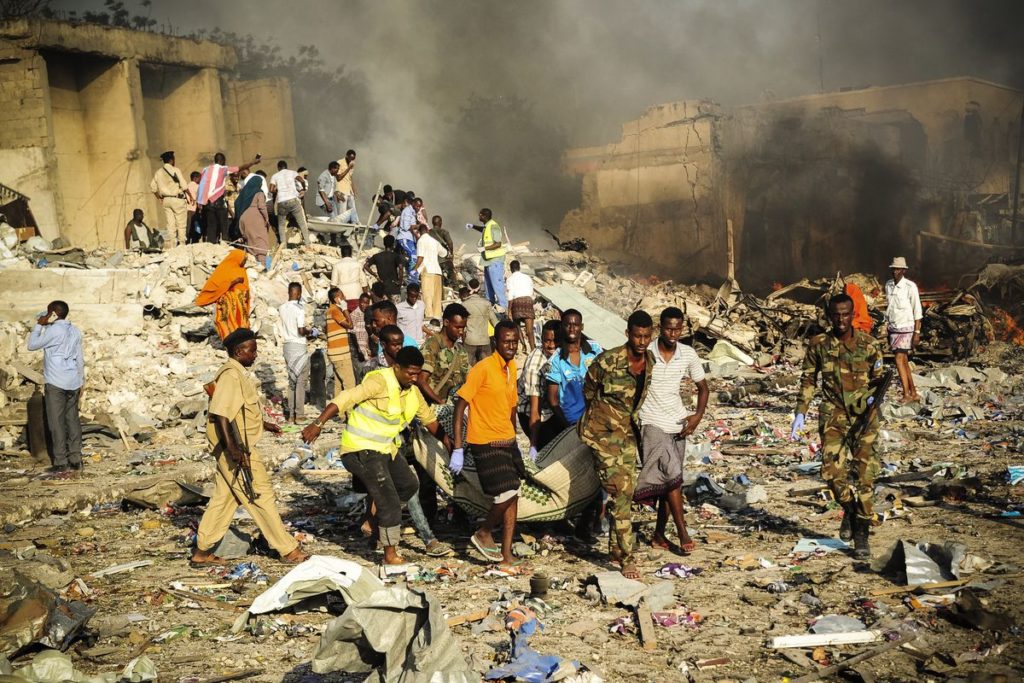At least 2,000 civilians killed in Somalia since 2016-UN report

More than half of the casualties were caused by Improvised Explosive Devices (IEDs)

At least 2,000 civilians were killed between January 2016 and October this with majority of the cases attributed to the militant group Al-Shabaab, a UN report released Sunday notes.
The report, title Protection of Civilians: Building the Foundation for Peace, Security and Human Rights in Somalia, which documents 2,078 deaths and 2,507 people injured also raises concern over the increasing effect of improvised explosive devices which within the report period accounts for 54% of the casualties (748 killed and 1,550 injured).
The militant group Al-Shabaab was responsible for 60% of the casualties (1,233 killed and 1,495 injured). State actors including the army and the police were responsible for 11% (522) of the casualties, clan militias (594), African Union forces, Amisom (181) while unidentified or undetermined attackers were responsible for 560 of the casualties, the report says.
Al-Shabaab also abducted 729 civilians while 5,821 civilians were arbitrarily arrested by security forces, the report notes.
CIVILIANS PAY THE PRICE
Speaking during the release of the report to mark the UN Human Rights Day in Mogadishu, UN chief in Somalia Michael Keating underscored the price civilians have had to pay as a result of failure to address conflicts in Somalia through the requisite channels.
“Ultimately, civilians are paying the price for failure ro resolve Somalia’s conflicts through political means,” said Keating. “And parties to the conflict are simply not doing enough to shield civilians from the violence. This is shameful.”
Clan conflicts as a result of the ongoing drought have also exacerbated the situation as clan militias clash for resources, the report produced jointly by UNSOM and UN Human Rights Office of the High Commissioner says. The militias were responsible for 251 deaths and 343 cases of injuries in areas where federal or state security forces are largely absent, the report notes.
The drought has intensified clan conflict due to competition for resources. These conflicts are exploited by anti-government elements to further destabilize areas, diminish prospects for lasting peace and weaken civilian protection.
BANAADIR MOST AFFECTED
Banaadir region recorded the highest number of casualties (2,265) followed by south west regions (735) Jubbaland (434), Puntland (419, HirShabelle (269), Galmudug (269) while Somaliland recorded the least casualties figures at 208.
Banaadir region which includes the capital, Mogadishu has seen a spike in casualty figures climbing to 102% within the reporting period. The October 14 truck bombing claimed 512 lives and injured over 300 others.
MILITARY OPERATIONS
Ground and air attacks by international forces including the US and Kenya Defence Forces (KDF) also caused heavy casualties, damage to public and private infrastructure and loss of livestock, the report noted adding such attacks have also impeded humanitarian relief for civilians in need.
The report documented 74 airstrikes resulting in 57 civilian casualties (41 killed and 16 injured with most of the cases (36 killed and six injured) attributed to KDF soldiers outside Amisom command.
However in its rejoinder to the report findings Kenya has denied having any forces outside Amisom and refuted allegations of civilian casualties in any of the strikes it conducted.
“The Republic of Kenya does not have non-Amisom troops in the Federal Republic of Somalia. For a UN report to insinuate that Kenya has an occupational force in Somalia is not only incorrect, but very unfortunate, hence need for this part of the report to be deleted forthwith,” Kenya ambassador to Somalia Lucas Tumbo said.
PUBLIC TRUST
UN High Commissioner for Human Rights Zeid Ra’ad Al Hussein said though casualty figures attributed to national security forces and Amisom were significantly smaller than those attributed to Al-Shabaab, such cases undermine public trust in government and international community.
“Nevertheless, such casualties are of utmost concern as they undermine the Somali population’s trust in the government and international community, which in turn expands the space in which anti-government elements continue to operate.”